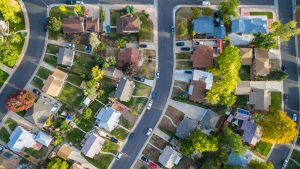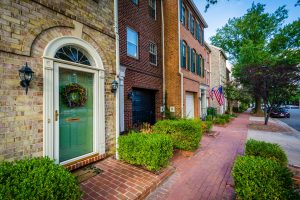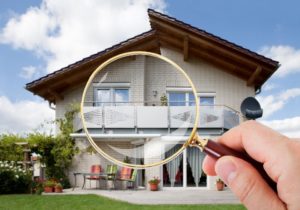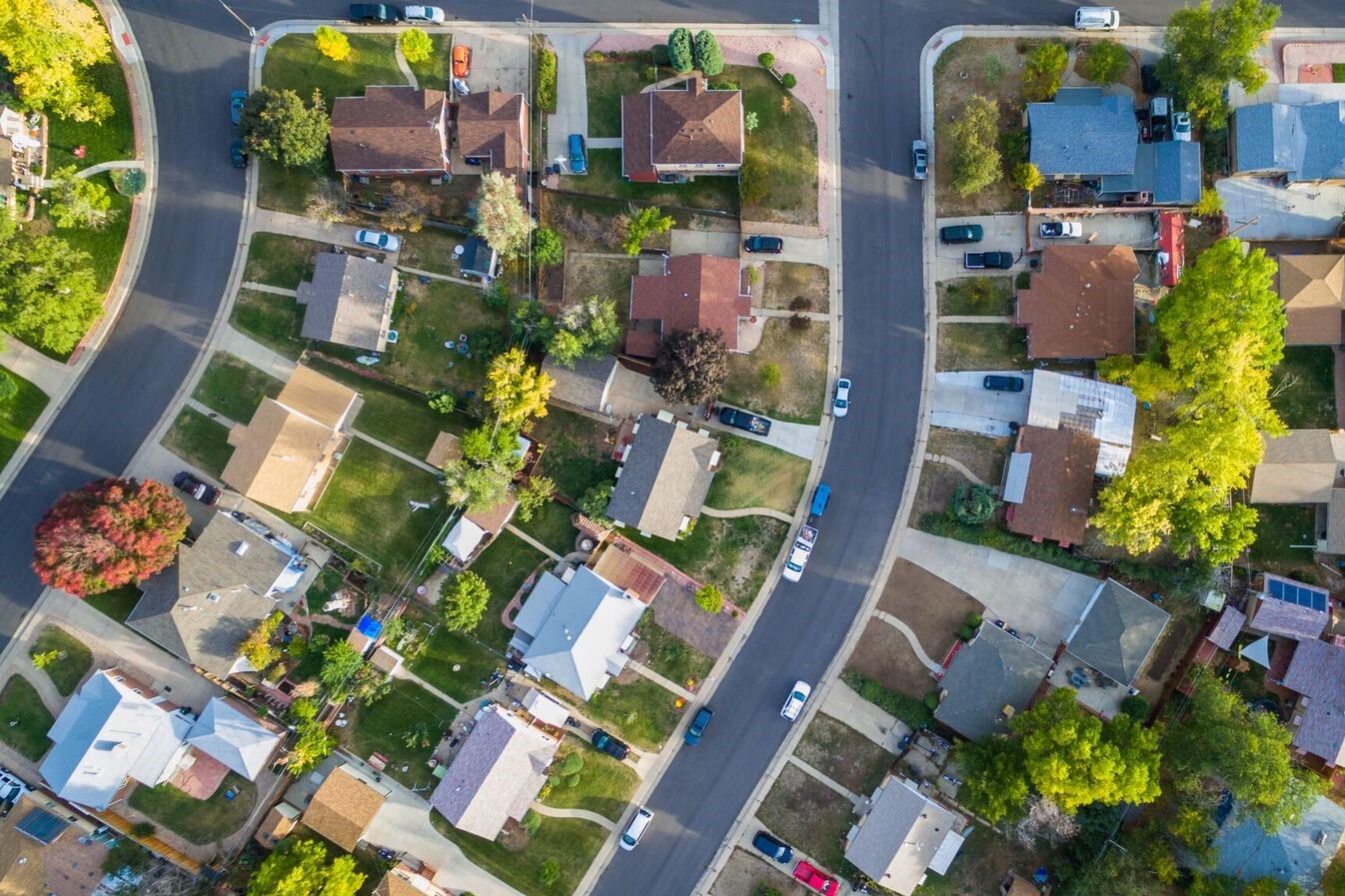It’s been a while since our last blog post on the building codes update process and a lot has happened since then. In April, VAEEC and several of our members, participated in an energy stakeholder group to reach consensus with the homebuilders and code officials to incorporate some energy efficiency measures in the new draft Uniform Statewide Building Code (USBC).
These new energy efficiency requirements include removing the visual inspection for duct-testing and bringing duct-testing standards up to the current 2015 model code standard. According to a Department of Energy report, requiring mechanical testing for both air-duct tightness and building envelope tightness are significant opportunities for Virginia. According to the EPA, leaky ducts can reduce the performance efficiency of heating and cooling units by 20%. We are very pleased to see the inclusion of mechanical testing for duct leakage in the new USBC.
 A second component of the energy subgroup compromise proposal, includes adoption of the 2018 model code Energy Rating Index (ERI) compliance option rather than the 2015 version. This newer version gives homebuilders greater flexibility and trade-off options, which is important since homebuilders in states that have already adopted the 2015 model code, have been slow to use this pathway. By implementing the 2018 version, Virginia is making the ERI pathway more enticing, which will hopefully result in greater participation.
A second component of the energy subgroup compromise proposal, includes adoption of the 2018 model code Energy Rating Index (ERI) compliance option rather than the 2015 version. This newer version gives homebuilders greater flexibility and trade-off options, which is important since homebuilders in states that have already adopted the 2015 model code, have been slow to use this pathway. By implementing the 2018 version, Virginia is making the ERI pathway more enticing, which will hopefully result in greater participation.
The compromise proposal unanimously passed the Codes and Standards Committee of the Board of Housing and Community Development last month. This new proposal will be part of the new draft USBC that will be reviewed by the full board on October 16, 2017.
You can read more about our support for these proposals in our letter to the Department of Housing and Community Development (DHCD) during the public comment period earlier this year.
These new components are in addition to the energy efficiency measures that are already included in the draft USBC, which was published last December in the Virginia Register. These proposals include improvements on lighting requirements, hot water pipe insulation, and the creation of the 2015 ERI compliance option.
So where do we go from here?
According to the DHCD website, the timeline below lists the next steps to finalizing the new regulations:
- October 16, 2017: DHCD Board will review and vote on final USBC; final draft will be sent to the Governor’s office for review
- Late Fall 2017: Governor’s office and Office of the Attorney General review final draft
- December 2017/ January 2018: Final regulations printed in Virginia Register and 30 day comment period
- February/March 2018: New regulations take effect
Even though we have made good strides in advancing energy efficiency through the building codes, there is still more work to be done. VAEEC will continue to advocate for more efficient window and insulation requirements in future USBC updates, as well as mandating mechanical testing for building envelope air-tightness. Proper air-tightness helps consumers save money on their energy bills while maintaining a consistent comfort level throughout the home by reducing the potential for air leakage to the outside.
 VAEEC partnered with one of our members, Responsible Energy Codes Alliance, to submit a proposal to DHCD staff to host a stakeholder group to review these issues next year, in the hopes that a compromise can be reached on inclusion of this crucial energy efficiency practice in the next USBC update. Last month, we were pleased to see the full DHCD board unanimously vote to support these efforts.
VAEEC partnered with one of our members, Responsible Energy Codes Alliance, to submit a proposal to DHCD staff to host a stakeholder group to review these issues next year, in the hopes that a compromise can be reached on inclusion of this crucial energy efficiency practice in the next USBC update. Last month, we were pleased to see the full DHCD board unanimously vote to support these efforts.
This workgroup will review the results from the DOE Field Study being conducted by VAEEC members Viridiant and the Southeast Energy Efficiency Alliance (SEEA) who will be collecting data in the field to determine what, if any, compliance issues could be addressed through training and education. You can read more about this study on SEEA’s website. The results of this study will greatly inform the workgroup’s ongoing discussions on the need to require mechanical testing for whole-home air tightness. The VAEEC is also working with other members to potentially host a training for the stakeholder group to demonstrate the tests themselves and how the results are interpreted.
You can read more about our recommendations for future building code updates here.
 Now that the General Assembly session has ended, the VAEEC has switched its attention to several of our other priority programs, including the building code update process currently taking place here in Virginia. Southeast Energy News just had a good summary of this process that quoted VAEEC Board member Andrew Grigsby extensively.
Now that the General Assembly session has ended, the VAEEC has switched its attention to several of our other priority programs, including the building code update process currently taking place here in Virginia. Southeast Energy News just had a good summary of this process that quoted VAEEC Board member Andrew Grigsby extensively.
There are myriad important ways for you to support strong building codes in Virginia.
Public Comment Period Now Open and Webinar Available for Support
The Department of Housing and Community Development (DHCD) recently opened a public comment period seeking comment on the current draft code regulations that will run through May 26 (an extension from the original deadline of April 21).
We will be holding a members-only webinar on Thursday, April 20 at 12pm that will include:
- Update on proposals we support
- Key messaging points to consider for your comments
- Overview of VAEEC’s draft comments
- Q&A and on-the-spot feedback
Comments can be submitted through the Commonwealth’s Town Hall website.
Support Proposals in Person
On April 11th, the stakeholder workgroup, which is open to anyone to participate, will be meeting to discuss all of the energy proposals currently being considered for inclusion in the code update. Any member of the public can attend and speak in support of proposals that are being presented. We encourage anyone who is interested in this topic to attend to show your support for the following proposals* to require:
*You need to register on the DHCD website to view these and other proposals that are currently being considered.
There will also be a public hearing at the May 15th Board of Housing and Community Development meeting. The meeting will begin at 10am. We strongly encourage anyone who wishes to attend this meeting to get there early as seating is very limited.
Board Nominations Open
Finally, as we mentioned in previous communications, there will be one open seat on the Board of Housing and Community Development. We are seeking candidates who have a strong building science background and who live in congressional district one, which runs from Poquoson to Manassas (check here to see if you live in this district). If you are interested in being on the board and qualify for this seat, please email me at Chelsea@vaeec.org with your resume. We will be submitting the name(s) of our potential candidates to the administration in late spring.
 On January 10, 2017, VAEEC and LEAP made the case for Virginia adopting the model energy codes for new buildings before the EO-57 Working Group. This is a group convened by Secretary of Natural Resources Molly Ward per Governor McAuliffe’s Executive Order 57 in the summer of 2016; the group is charged with recommending concrete steps to reduce carbon pollution from Virginia’s power plants using existing authority; a public comment period is open through April 30.
On January 10, 2017, VAEEC and LEAP made the case for Virginia adopting the model energy codes for new buildings before the EO-57 Working Group. This is a group convened by Secretary of Natural Resources Molly Ward per Governor McAuliffe’s Executive Order 57 in the summer of 2016; the group is charged with recommending concrete steps to reduce carbon pollution from Virginia’s power plants using existing authority; a public comment period is open through April 30.
You can download our full presentation here. Learn more about EO-57 and submit your comments here.
Our case was greatly strengthened by the fact that two of the day’s six other presenters also recommended building codes as among the most cost-effective strategies for minimizing greenhouse gas emissions. They mentioned codes as preferred options, and we got into the details of how Virginia’s code update process works, where Virginia deviates from the model codes and what that costs new homebuyers, and how the Working Group’s representatives might intervene. We included data suggesting that even improved compliance with the current code would obtain real benefits for emissions reductions and for new homebuyers.
Our specific recommendations were as follows:
- Provide guidance to DEQ and DMME staff regarding how to participate in code update process (e.g., submit comments, support amendments).
Create an ex-officio seat for DMME staff on the Board of Housing and Community Development.
- Direct DHCD and DMME to enter into an MOU for information sharing.
- Ensure that it is the policy of DHCD to provide expert guidance regarding building science to inform the code update process.
- Fund/support a study of compliance with current codes.
The triennial update to Virginia’s building codes is an administrative process managed by the Department of Housing and Community Development and involving many stakeholders. Energy conservation is still considered a relatively minor issue by many of the current participants in this process. The VAEEC is committed to educating all participants about the many benefits of adopting and enforcing rigorous energy codes.
As we pointed out, strong codes are a win for:
- Environmental policy (global warming, resource use)
- Energy policy (costs, grid stability, predictability)
- The construction industry (deliver a more valuable, higher-quality product
- The mortgage industry (32% less risk of default (IMT/UNC report)
- Local jobs (framing and insulating don’t happen overseas)
- Affordable housing (lowers total cost of housing and increases predictability of monthly costs)
- Home buyers/renters of all kinds (comfort, savings, predictability, air quality)
Not to mention people want it. A 2013 survey by the National Association of Homebuilders reports that 9 out of 10 homebuyers are willing to pay 2-3% more for a home that includes permanent energy efficiency features.
You can dig deeper into building codes in our October 2016 blog post “The impact and next steps of Virginia’s Board of Housing and Community Development on building codes” or by watching our December 2016 webinar “Building Codes as Energy Efficiency Driver in Virginia.”
VAEEC staff and members will continue to advocate for advanced energy codes in Virginia through the coming year.
Chelsea Harnish is VAEEC Executive Director.
Andrew Grigsby is Executive Director of the Local Energy Alliance Program (LEAP) and a member of the VAEEC Governance Board.
 A second component of the energy subgroup compromise proposal, includes adoption of the 2018 model code Energy Rating Index (ERI) compliance option rather than the 2015 version. This newer version gives homebuilders greater flexibility and trade-off options, which is important since homebuilders in states that have already adopted the 2015 model code, have been slow to use this pathway. By implementing the 2018 version, Virginia is making the ERI pathway more enticing, which will hopefully result in greater participation.
A second component of the energy subgroup compromise proposal, includes adoption of the 2018 model code Energy Rating Index (ERI) compliance option rather than the 2015 version. This newer version gives homebuilders greater flexibility and trade-off options, which is important since homebuilders in states that have already adopted the 2015 model code, have been slow to use this pathway. By implementing the 2018 version, Virginia is making the ERI pathway more enticing, which will hopefully result in greater participation. VAEEC partnered with one of our members, Responsible Energy Codes Alliance, to submit a proposal to DHCD staff to host a stakeholder group to review these issues next year, in the hopes that a compromise can be reached on inclusion of this crucial energy efficiency practice in the next USBC update. Last month, we were pleased to see the full DHCD board unanimously vote to support these efforts.
VAEEC partnered with one of our members, Responsible Energy Codes Alliance, to submit a proposal to DHCD staff to host a stakeholder group to review these issues next year, in the hopes that a compromise can be reached on inclusion of this crucial energy efficiency practice in the next USBC update. Last month, we were pleased to see the full DHCD board unanimously vote to support these efforts.

 Now that the General Assembly session has ended, the VAEEC has switched its attention to several of our other priority programs, including the building code update process currently taking place here in Virginia. Southeast Energy News just had a
Now that the General Assembly session has ended, the VAEEC has switched its attention to several of our other priority programs, including the building code update process currently taking place here in Virginia. Southeast Energy News just had a On January 10, 2017, VAEEC and LEAP
On January 10, 2017, VAEEC and LEAP